A movement controller is responsible for assisting in planning, preparation, documentation, coordination and control of military movements in support of operations, exercises and administrative deployments worldwide by road, rail, sea and air.

A military is a heavily-armed, highly-organised force primarily intended for warfare, also known collectively as armed forces. It is typically officially authorized and maintained by a sovereign state, with its members identifiable by their distinct military uniform. It may consist of one or more military branches such as an Army, Navy, Air Force and in certain countries, Marines and Coast Guard. The main task of the military is usually defined as defence of the state and its interests against external armed threats. Beyond warfare, the military may be employed in additional sanctioned and non-sanctioned functions within the state, including internal security threats, population control, the promotion of a political agenda, emergency services and reconstruction, protecting corporate economic interests, social ceremonies and national honor guards.
They have good working knowledge of all forms of transport, both military and civilian.
Means of transport is a term used to distinguish substantially different means of conveyance. The different modes of transport are air, water, and land transport, which includes Rails or railways, road and off-road transport. Other modes also exist, including pipelines, cable transport, and space transport. Human-powered transport and animal-powered transport are sometimes regarded as their own mode, but never fall into the other categories. In general, transportation is used for the movement of people, animals, and other things. Each mode of transport has a fundamentally different technological solution, and some require a separate environment. Each mode has its own infrastructure, vehicles, and operations.
In general, a civilian is "a person who is not a member of the military or of a police or firefighting force". The definition distinguishes from persons whose duties involves risking their lives to protect the public at large from hazardous situations such as terrorism, riots, conflagrations, or wars. It also does not include "criminals" in the category, as authorities and the media wants to distinguish between those who are law-abiding and those who are not.
Works in conjunction with elements of all services, other government departments, civilian and commercial officials.
Employed worldwide, static or mobile, as a team member or individual.
A court-martial or court martial is a military court or a trial conducted in such a court. A court-martial is empowered to determine the guilt of members of the armed forces subject to military law, and, if the defendant is found guilty, to decide upon punishment. In addition, courts-martial may be used to try prisoners of war for war crimes. The Geneva Convention requires that POWs who are on trial for war crimes be subject to the same procedures as would be the holding military's own forces. Finally, courts-martial can be convened for other purposes, such as dealing with violations of martial law, and can involve civilian defendants.
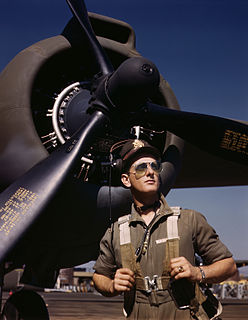
An aircraft pilot or aviator is a person who controls the flight of an aircraft by operating its directional flight controls. Some other aircrew members, such as navigators or flight engineers, are also considered aviators, because they are involved in operating the aircraft's navigation and engine systems. Other aircrew members, such as flight attendants, mechanics and ground crew, are not classified as aviators.

Military police (MP) are law enforcement agencies connected with, or part of, the military of a state.

A gendarmerie or gendarmery is a military component with jurisdiction in civil law enforcement. The term gendarme is derived from the medieval French expression gens d'armes, which translates to "armed people". In France and some Francophone nations, the gendarmerie is a branch of the armed forces responsible for internal security in parts of the territory with additional duties as a military police for the armed forces. This concept was introduced to several other Western European countries during the Napoleonic conquests. In the mid twentieth century, a number of former French mandates or colonial possessions such as Lebanon, Syria, and the Republic of the Congo adopted a gendarmerie after independence.
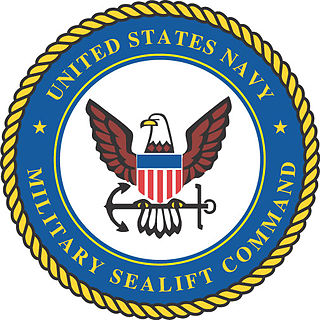
The United States Navy's Military Sealift Command (MSC) is an organization that controls the replenishment and military transport ships of the Navy. Military Sealift Command has the responsibility for providing sealift and ocean transportation for all US military services as well as for other government agencies. It first came into existence on 9 July 1949 when the Military Sea Transportation Service (MSTS) became solely responsible for the Department of Defense's ocean transport needs. The MSTS was renamed the Military Sealift Command in 1970.

A military base is a facility directly owned and operated by or for the military or one of its branches that shelters military equipment and personnel, and facilitates training and operations. A military base provides accommodations for one or more units, but it may also be used as a command center, training ground or proving ground. In most cases, military bases rely on outside help to operate. However, certain complex bases are able to endure on their own for long periods because they are able to provide food, water and other life support necessities for their inhabitants while under siege. Military bases for military aviation are called military air bases. Military bases for military ships are called naval bases.

The Defense Commissary Agency (DeCA), headquartered at Fort Lee (Virginia), is an agency of the United States Department of Defense (DoD) that operates nearly 240 commissaries worldwide. American military commissaries sell groceries and household goods to active-duty, Guard, Reserve, and retired members of all seven uniformed services of the United States and eligible members of their families at cost plus surcharge, saving authorized patrons thousands of dollars compared to civilian supermarkets.

The Department of Defense Education Activity (DoDEA) is a civilian agency of the United States Department of Defense that manages schools for military-connected children in the United States and overseas at American military bases worldwide. DoDEA's schools serve the children of military service members and Department of Defense civilian employees throughout the world. Children of enlisted military personnel represent 85 percent of the total enrollment in DoDEA schools. DoDEA also provides support to more than one million military-connected students who attend public schools throughout the United States. It is headed by a director who oversees all agency functions from the Mark Center in Alexandria, Virginia. DoDEA's schools are divided into three regions, each of which is managed by an area director. Within each of these three regions schools are organized into districts headed by superintendents.
Awards and decorations of the United States Army are those military awards including decorations which are issued to members of the United States Army under the authority of the Secretary of the Army. Together with military badges such awards provide an outward display of a service member's accomplishments.
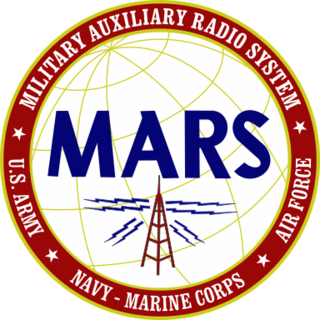
The Military Auxiliary Radio System (MARS) is a United States Department of Defense sponsored program, established as a separately managed and operated program by the United States Army, and the United States Air Force. The United States Navy-Marine program has been closed. The program is a civilian auxiliary consisting primarily of licensed amateur radio operators who are interested in assisting the military with communications on a local, national, and international basis as an adjunct to normal communications. The MARS programs also include active duty, reserve, and National Guard units; Navy, Marine Corps, and National Oceanic and Atmospheric Administration ships, and Coast Guard cutters and shore stations.

Law enforcement in Canada are public-sector police forces that are associated with and commissioned to the three levels of government: municipal, provincial, and federal. Most urban areas have been given the authority by the provinces to maintain their own police force. All but two of Canada's provinces in turn, contract out their provincial law-enforcement responsibilities to the Royal Canadian Mounted Police, the national police force, which is commissioned to the federal level of government. In addition, many First Nations Reserves have their own police forces established through agreements between the governing native band, province and the federal government with 50,000 members.

The Air War College (AWC) is the senior Professional Military Education (PME) school of the U.S. Air Force. A part of the United States Air Force's Air University, AWC emphasizes the employment of air, space, and cyberspace in joint operations. Headquartered at Maxwell Air Force Base in Montgomery, Alabama, its higher headquarters is the Air Education and Training Command (AETC) at Randolph Air Force Base in San Antonio, Texas. It is one of six war colleges within the U.S. Department of Defense's Joint Professional Military Education (JPME) Phase II Education Program for commissioned officers.
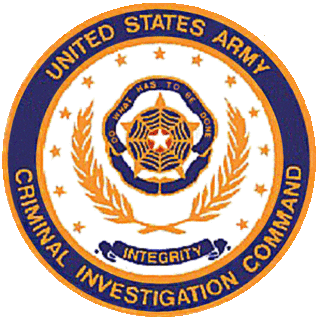
The United States Army Criminal Investigation Command (USACIDC) investigates felony crimes and serious violations of military law & the United States Code within the United States Army. The command is a separate military investigative force with investigative autonomy; CID special agents report through the CID chain of command to the USACIDC Commanding General, who reports directly to the Chief of Staff of the Army and the Secretary of the Army. By position, the USACIDC commanding general is also the Army's Provost Marshal General.
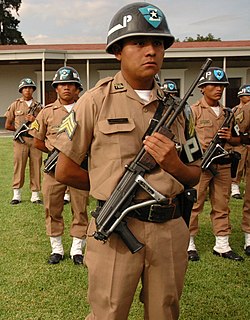
Provosts are military police whose duties are policing solely within the Armed Forces, as opposed to gendarmerie duties in the civilian population. However, many countries use their gendarmerie for provost duties.

The 507th Air Refueling Wing is a reserve component flying unit of the United States Air Force. It is assigned to Fourth Air Force of Air Force Reserve Command, stationed at Tinker Air Force Base, Oklahoma with elements at Altus Air Force Base, Oklahoma. The 507th ARW executes air refueling, airlift, and training in support of Air Mobility Command and U.S. Strategic Command's national emergency war order requirements. The wing employs approximately 1,100 men and women made up of a mix of Traditional Reservists, full-time Air Reserve Technicians, AGRs and Air Force civilians. The wing also provides mission support for all other reserve units stationed at Tinker AFB.
Civil affairs in the United States Armed Forces are civil-military operations (CMO) use of military force to control areas seized from the enemy, minimize insurgency or civil interference with military operations, and maximize civil support for military operations. CMO is conducted in conjunction with combat operations during wartime and becomes a central part of a military campaign in counter-insurgencies. CMO operations have been in frequent use since 1775 by the Army, as well as more recently by the Navy and Marine Corps.

The Air Force Legal Operations Agency (AFLOA) includes all senior defense counsel, senior trial counsel, and appellate defense and government counsel in the Air Force, as well as all Air Force civil litigators defending the Air Force against civil law suits claiming damages and seeking other remedies in contracts, environmental, labor, and tort litigation. The agency includes numerous field support centers to include Tort Claim, Environmental Law, Labor Law, Commercial Litigation, Contract Law, Medical Law, and Accident Investigation Board. It also includes the utility litigation team, the Medical Cost Reimbursement program, and the Air Force Claims Service Center. The agency also includes the Judge Advocate General’s school and the Information Systems Directorate. This provides information technology services to worldwide Air Force legal offices and provides federal legal information technology through Federal Legal Information Technology and electronics services to legal offices throughout the Department of Defense. AFLOA has offices worldwide at more than 76 locations and consists of 426 military and civilian attorneys and 405 military and civilian paralegals and support personnel.

The General Counsel of the Department of the Navy is the senior civilian lawyer in the U.S. Department of the Navy and is the senior legal adviser to the Secretary of the Navy. The Office of the General Counsel of the Navy provides legal advice to the Secretary, the Under Secretary of the Navy and the various Assistant Secretaries of the Navy and their staffs. The General Counsel of the Navy is the third highest-ranking civilian office in the Department of the Navy, behind the Secretary and Under Secretary of the Navy.
The Small Arms Survey is an independent research project located at the Graduate Institute of International and Development Studies in Geneva, Switzerland. It provides information on all aspects of small arms and armed violence, as a resource for governments, policy-makers, researchers, and activists, as well as research on small arms issues.















